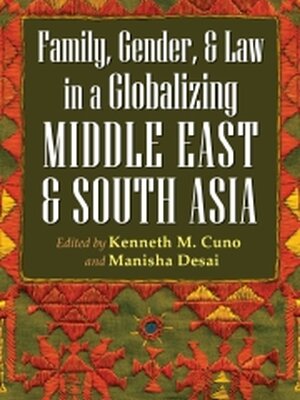Image

The essays in this collection examine issues of gender, family, and law in the Middle East and South Asia. In particular, the authors address the impact of colonialism on law, family, and gender relations; the role of religious politics in writing family law and the implications for gender relations; and the tension between international standards emerging from UN conferences and conventions and various nationalist projects. Employing the frame of globalization, the authors highlight how local and global forces interact and influence the experience and actions of people who engage with the law. By virtue of a "south-south" comparison of two quite similar and culturally linked regions, contributors avoid positing "the West" as a modern telos. Drawing upon the fields of anthropology, history, sociology, and law, this volume offers a wide-ranging exploration of the complicated history of jurisprudence with regard to family and gender.